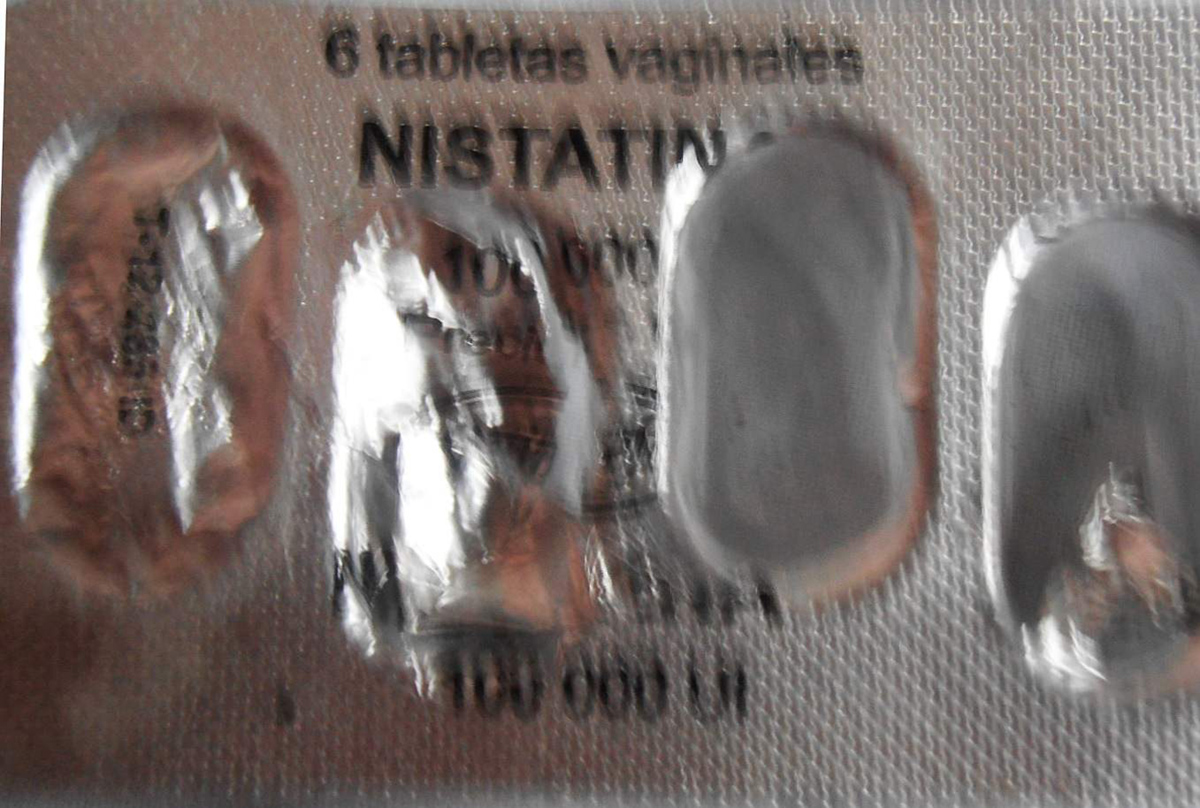Nystatin
Nystatin is an antifungal medication that is not available without a prescription, and which is used in the treatment of different fungal infections, particularly those caused by candida. However, since it mostly stays in the digestive tract and is poorly absorbed into the bloodstream, it is much more effective when used in cases of fungal infections that are either on the surface of the body or in the digestive tract.
- Nystatin is a membrane-active polyene macrolide produced by Streptomyces noursei strains and is available in various forms, such as oral suspension, topical cream, and oral pastille. Nystatin is not absorbed from gastrointestinal tract when orally administered.
- Four electronic databases were searched for trials published in English till July 1, 2015. Randomized controlled trials comparing nystatin with other antifungal therapies or a placebo were included. Clinical and/or mycological cure was the outcome evaluation. A meta-analysis or descriptive study on the efficacy, treatment protocols, and safety of nystatin was conducted.
- The meta-analysis showed that nystatin pastille was significantly superior to placebo in treating denture stomatitis. Nystatin suspension was not superior to fluconazole in treating oral candidiasis in infants, children, or HIV/AIDS patients. The descriptive investigations showed that administration of nystatin suspension and pastilles in combination for 2 weeks might achieve a higher clinical and mycological cure rate, and using the nystatin pastilles alone might have a higher mycological cure rate, when compared with using nystatin suspensions alone.
- Nystatin pastilles at a dose of 400,000 IU resulted in a significantly higher mycological cure rate than that administrated at a dose of 200,000 IU. Furthermore, treatment with nystatin pastilles for 4 weeks seemed to have better clinical efficacy than treatment for 2 weeks. Descriptive safety assessment showed that poor taste and gastrointestinal adverse reaction are the most common adverse effects of nystatin.
A Few Warnings about Nystatin Use
As for the side effects of nystatin, they are various, and it depends on the individual whether or not some of them will appear. A very important element that can affect the chances of their occurrence is the general health of the patients who are prescribed this medication, as well as other medical conditions that they might have (if they suffer from kidney failure or some other kidney disease, certain side effects of nystatin are more likely to occur in their cases).

The same goes for the patients who have some kind of an allergy because even if they are only allergic to some kind of food, their chances of experiencing side effects of this medication are increased. This medication has not been studied enough in pregnant and breastfeeding women, so it is not really known whether it can affect the fetus or baby, and side effects can be expected. This is why its use is not recommended for these women, and why it is much safer if they simply do not use it.
When it comes to the side effects caused by interactions with other medications, nystatin is not likely to cause such complications, since it does not reach the liver, so people do not have to stop using other medications or worry about this possibility.
Side Effects of Nystatin
The fact is that side effects are very rarely reported when it comes to this medication, and it is generally well tolerated, regardless of the form in which it is used. However, according to the results of some studies, it has been concluded that the most commonly experienced side effects are diarrhea, nausea, vomiting, and other problems with the stomach if the medication is taken orally while burning, itching, eczema and even pain have been reported in skin products containing nystatin.
None of these symptoms calls for medical attention, but if bloody diarrhea, a rapid heart rate, or signs of allergic reaction occur, the patient should not wait for the symptoms to withdraw by themselves.

















Your thoughts on this
Loading...